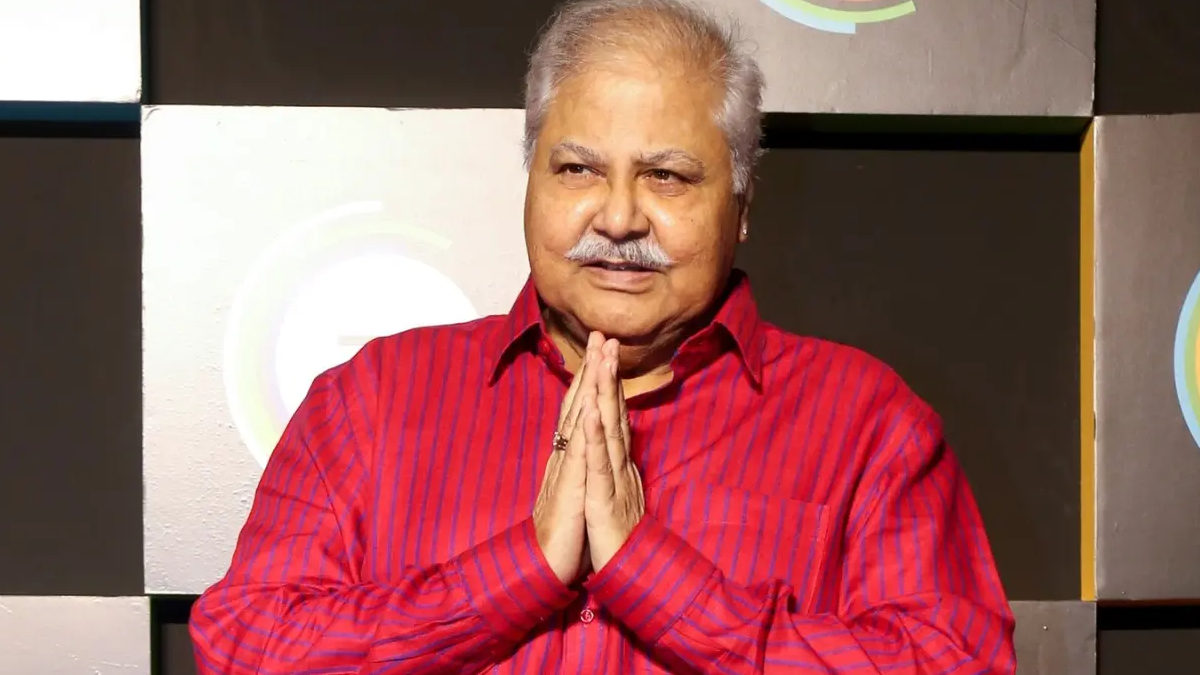There are actors who make you laugh, and then there are those whose very presence promises laughter. Satish Shah belonged to the latter. The moment he entered the frame, something inside you smiled. His face carried mischief, warmth, and a kind of unspoken assurance that something funny was about to happen. It didn’t need words — just that twinkle in his eyes and the slight tilt of his head was enough.
Satish Ravilal Shah (25 June 1951 – 25 October 2025) wasn’t simply a comic actor. He was a craftsman who understood that humour is rhythm — a melody that relies on silence as much as on sound. He had a musician’s sense of timing, a painter’s eye for detail, and a philosopher’s empathy for the everyday absurdities of life. In a world that often mistakes noise for comedy, Satish Shah’s humour was soft-spoken, intelligent, and wonderfully human.
For millions of Indians, their first memory of him was in Yeh Jo Hai Zindagi. Week after week, Satish became someone new — a taxi driver, a boss, a neighbour, a priest. He played them all, and somehow, you never felt he was repeating himself. He had the rare gift of vanishing into character without losing his essence. Families across India sat together on Friday nights not just to watch a sitcom, but to see what new avatar Satish Shah would surprise them with. His versatility was astonishing, his ease deceptive. It all looked effortless — because he made it so.
And then came Jaane Bhi Do Yaaro. As the overconfident municipal commissioner D’Mello, Satish turned chaos into art. His performance in that iconic Mahabharat scene remains one of Indian cinema’s greatest comic moments — an orchestra of confusion where every gesture and pause added to the symphony. You could watch that sequence a hundred times and still find something new in his expressions, a fresh nuance in his timing. That was his magic: he didn’t just deliver jokes; he created moments.
Two decades later, Satish Shah found a new home in Sarabhai vs Sarabhai. As Indravadan Sarabhai, he became the lovable patriarch with a sarcastic streak and impeccable comic timing. His banter, his mock arrogance, his effortless rapport with every co-actor — all of it created a character that generations still quote today. Even now, social media is filled with Indu’s one-liners, proof that his humour was not only sharp but timeless.
Off-screen, though, Satish was nothing like his flamboyant roles. Those who knew him speak of a quiet man, full of understated wit and kindness. His jokes in real life were never loud or attention-seeking; they were gentle, perfectly timed asides that left people in laughter long after he’d moved on. He was a trained actor from FTII, and he approached comedy with the same rigour others reserved for tragedy. Every pause, every reaction, was measured — not mechanical, but mindful. That’s why his humour felt real. It came from observation, not exaggeration.
He once told a friend about an incident that stayed with him. While his wife was undergoing surgery, a fan approached him in the hospital corridor and asked him to tell a joke. It was a moment that summed up both the beauty and burden of being funny. “People think you live in laughter,” he said quietly, “but sometimes, you only borrow it for them.” There was grace in that — the grace of someone who understood what he gave to the world.
It’s hard to recall Satish Shah in a serious role, and perhaps that was deliberate. He didn’t want to remind audiences of pain; he wanted to give them respite from it. His art was never cynical, never cruel. It was rooted in affection — for people, for their follies, for the small confusions that make us human. He wasn’t laughing at the world; he was laughing with it.
His passing leaves a strange quiet — the kind that follows a perfect punchline. For decades, he made Indian living rooms ring with laughter. He taught us that comedy doesn’t need to shout to be heard. It just needs honesty. And now, as the curtain falls on one of the finest comic actors this country has ever known, there’s no need for grand farewells. Just a smile, maybe a chuckle, and a line he might have said himself, “Arre, drama mat karo yaar… hasso thoda.”
Because even in his final bow, Satish Shah would want the applause to sound like laughter.
Curtain Call for Satish Shah: The Man Who Made Laughter Feel Effortless
Remembering Satish Shah, the beloved comic genius of Jaane Bhi Do Yaaro, Yeh Jo Hai Zindagi and Sarabhai vs Sarabhai, whose laughter lit up generations.

